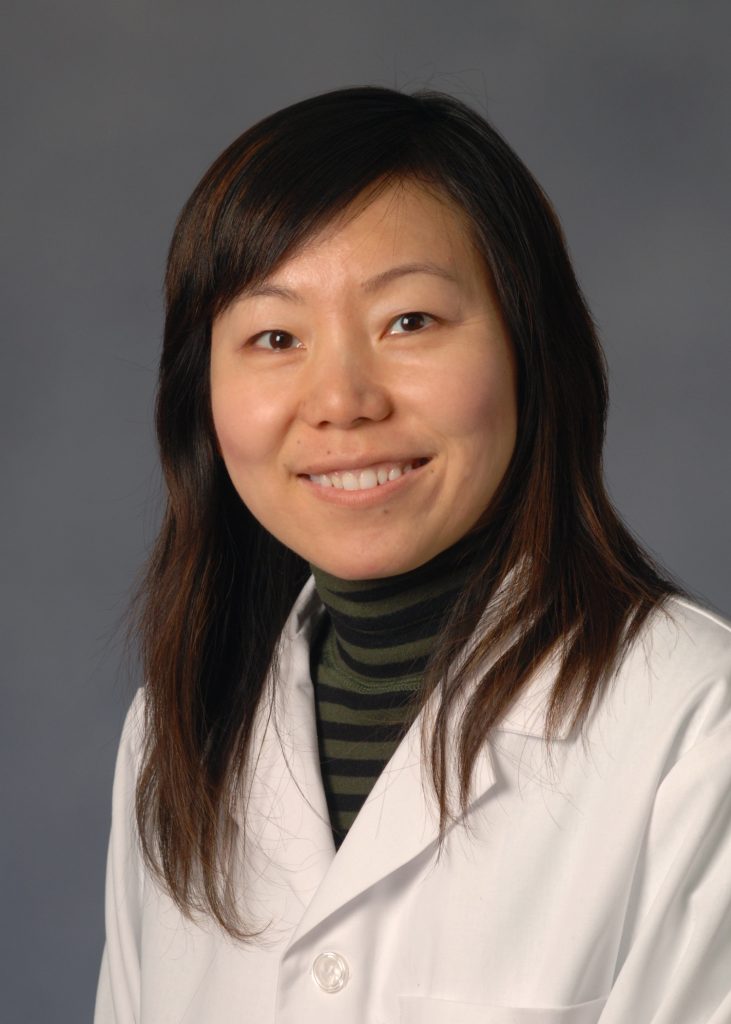Study Reveals Key Differences in Ocular Growth Patterns & Informs Future Care for Children with Crossed Eyes
 New York, NY — SUNY College of Optometry today announced that Dr. Jingyun Wang, Associate Professor and Director of the Pediatric Vision Research Lab, published a landmark study in Ophthalmic and Physiologic Optics examining the developmental patterns of eye growth in children with accommodative esotropia, a common form of childhood eye crossing associated with farsightedness.
New York, NY — SUNY College of Optometry today announced that Dr. Jingyun Wang, Associate Professor and Director of the Pediatric Vision Research Lab, published a landmark study in Ophthalmic and Physiologic Optics examining the developmental patterns of eye growth in children with accommodative esotropia, a common form of childhood eye crossing associated with farsightedness.
The study, titled “Longitudinal Development of Ocular Biometric Components and Refractive Error in Hyperopic Children with Infantile Versus Late-Onset Accommodative Esotropia,” is the first prospective, long-term analysis comparing two subtypes of this condition—those beginning in infancy and those with later onset. Dr. Wang’s findings shed new light on how children’s eyes grow and change over time depending on when their condition began and offer critical insights that could reshape how eye care professionals treat these patients.
The research followed 97 children over nearly five years, analyzing changes in eye length, lens thickness, corneal shape, and refractive error. Results showed that although all children exhibited changes in ocular growth, those with infantile onset esotropia experienced more substantial eye development compared to children with late-onset esotropia. These findings offer valuable insights for tailoring long-term treatment plans and lens prescriptions for the two patient groups
“Accommodative esotropia has long challenged clinicians because the visual development process varies so widely,” said Dr. Jingyun Wang, Associate Professor and Director of the Pediatric Vision Research Lab at SUNY Optometry. “With this new study, we can more accurately track and predict how a child’s eye might grow depending on the timing of their diagnosis. I’m proud to see this work published and look forward to continuing research that enhances how we improve children’s eye care.
This research builds on Dr. Wang’s extensive body of work on pediatric vision. In a recent related study, Dr. Wang co-authored a paper tracking refractive error changes in over 400 Black and Hispanic children, revealing important differences in the prevalence and progression of conditions like astigmatism and anisometropia across racial groups. That study, published in Optometry and Vision Science, called for greater awareness of ethnic disparities in pediatric vision care.
Dr. Wang’s Pediatric Vision Research Lab at SUNY Optometry is dedicated to developing improved diagnostics and therapies for pediatric eye diseases, including lazy eye, nearsightedness, and eye alignment disorders. Her lab has led both clinical trials and translational research projects and collaborates with national partners like the G-ROP and PEDIG study groups. Her research is supported by the National Eye Institute, the Hoffman Foundation, and the American Academy of Optometry Foundation.
FOR IMMEDIATE RELEASE: April 23, 2025
Media Contact: Dawn Rigney
communications@sunyopt.edu 212-938-5600
###
About SUNY Optometry
Founded in 1971 and located in New York City, the State University of New York College of Optometry is a leader in education, research, and patient care, offering the Doctor of Optometry degree as well as MS and PhD degrees in vision science. The College conducts a robust program of basic, translational and clinical research and has 65 affiliated clinical training sites as well as an on-site clinic, the University Eye Center. SUNY Optometry is regionally accredited by the Commission on Higher Education of the Middle States Association of Colleges and Secondary Schools; its four-year professional degree program and residency programs are accredited by the Accreditation Council on Optometric Education of the American Optometric Association. All classrooms, research facilities and the University Eye Center, which is one of the largest optometric outpatient facilities in the nation, are located on 42nd Street in midtown Manhattan. To learn more about SUNY Optometry, visit www.sunyopt.edu.
